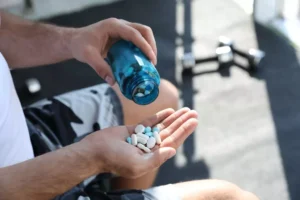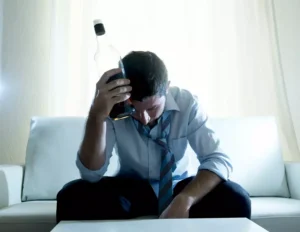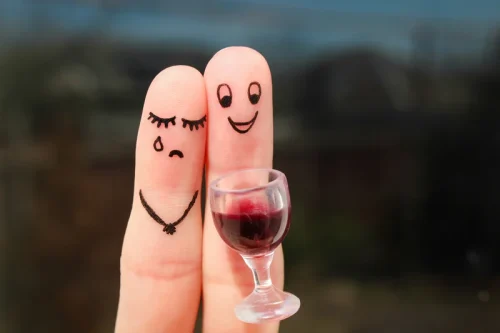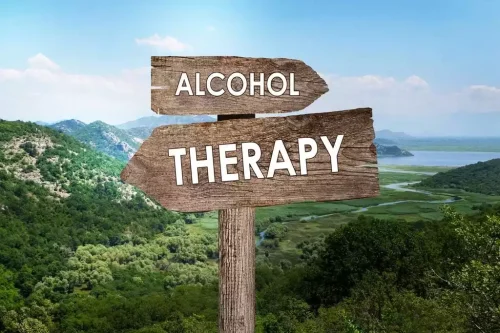Ways to stop alcohol cravings

Find an image with personal meaning to enhance the usefulness of this method. Go back to a time when you swore you’d never touch a substance https://ecosoberhouse.com/ again. The National Council on Alcoholism and Drug Dependence and AlcoholScreening.org offer more comprehensive self-tests.
Build your own personalized toolkit
These can be quite intense and powerful, especially if you’re in the early days of your recovery from addiction. It is next to certain that any change in habitual behavior how to stop alcohol cravings will at some point result in urges or cravings for the old behavior. Who hasn’t experienced a craving for something salty or sweet when trying to eat healthier?
Talk About the Drug and Alcohol Cravings
- At the end of the day, one of the most important tools you have at your disposal is self-compassion.
- While cravings are uncomfortable, they don’t have to result in relapse.
- A deficiency in these nutrients can disrupt this balance and potentially increase cravings for alcohol.
- For example, individuals who have grown up in households where alcohol misuse was prevalent may be more susceptible to developing cravings for alcohol themselves.
- Furthermore, research has shown that alcohol cravings can also be influenced by genetic factors.
When a craving for alcohol strikes, a good first step involves acknowledging the craving, according to Mehta. She goes on to explain that while the craving might be intense, it will lessen and pass in a few minutes. Over time, alcohol use begins to affect the neurotransmitters, or chemical messengers, in your brain. However, just because someone experiences cravings does not mean they have AUD. Understanding these cues can help a person predict them, prepare for them, and act against many of them. Calling or texting a friend, family member, or another trusted individual can be a form of distraction and support.

Incorporating These Foods into Your Diet to Curb Alcohol Cravings
But once you understand them, you can learn how to curb alcohol cravings. You might feel a loss of control or an overwhelming desire to consume alcohol, even if you know it would have negative consequences. There are some clear neurochemical reasons you might experience cravings.
- While there is no magic bullet to stop urges to drink or cravings for alcohol, there are ways to manage and reduce urges or cravings to drink.
- Although the available evidence is mixed or lacking in humans, the following natural supplements, herbs, and vitamins might help curb alcohol cravings (5, 6, 7).
- Unstable vital signs increase the risk of complications and can be managed with medications.
- A physician or other qualified healthcare provider can assess whether one of the following medications can help you.
- The type of craving will determine how we should respond to it.
- Behavioral health treatment for alcohol problems is often (but not always) covered by insurance.
- It’s important to remember that everyone’s timeline is unique.
- They trigger an endorphin release similar to the one that alcohol stimulates, making them an effective substitute.
- A heavy drinking binge may even cause a life-threatening coma or death.
- One of the active ingredients in milk thistle extract is silymarin, which may improve liver function in people with alcohol use disorder.
- However, medical complications can occur during the acute phase of withdrawal.
- The alcohol withdrawal timeline varies, but the worst of the symptoms typically wear off after 72 hours.
- This is key to keeping cravings under control, especially when your body is used to using alcohol as a quick form of fuel.
Both avoiding and distraction can work well, but if that’s all you do, they can leave you tired and fearful of urges. To overcome urges and not be fearful of them, you’ll need more advanced methods. You’ll need to experience the urge, but not act on it, until the urge lessens and goes away. This signal is telling you to have a drink, but it’s not controlling you. While having an urge can be uncomfortable, it won’t hurt you. With practice, the urge can become a signal to use an urge coping strategy.
Naltrexone Is Not a Quick Fix

Managing alcohol cravings is a vital part of maintaining sobriety. Connect with an alcohol rehab to get the support you need to meet your recovery goals. Social support is a vital part of recovery10 from alcohol addiction.


Mutual-support groups provide peer support for stopping or reducing drinking. Group meetings are available in most communities at low or no cost, and at convenient times and locations—including an increasing presence online. This means they can be especially helpful to individuals at risk for relapse to drinking.
Fermented Foods: A Gut-Healthy Choice

